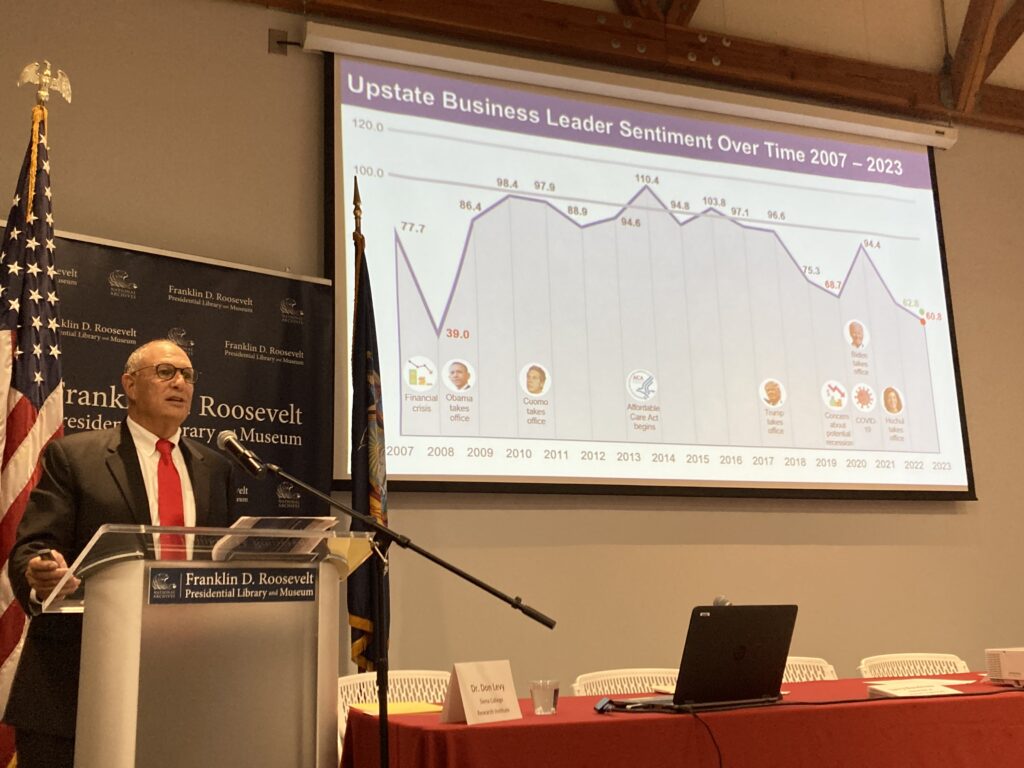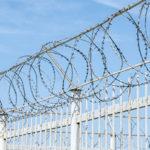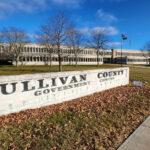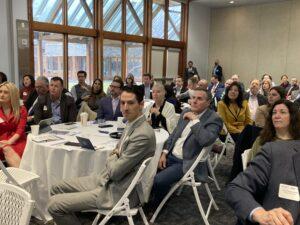
HYDE PARK- A survey of more than 500 upstate business leaders shows optimism that several sectors of the economy – technology, education, tourism, medical, and manufacturing – will prosper in the next three to five years, and a majority describe current business conditions in their local area as staying the same or getting better.
However, CEOs surveyed by the Siena College Research Institute also are wary of current adverse economic conditions, government regulation, rising supplier costs, healthcare costs, and taxation. Those sentiments also were among those revealed in the Research Institute’s Business Leader Confidence Index, which recorded the second lowest score since the survey began 17 years ago, topping only the score recorded during the Great Recession of 2008.
The Siena College Research Institute’s Upstate New York Business Leader Survey was conducted in partnership with UHY, a prominent professional services firm, and the Hudson Valley Economic Development Corp.
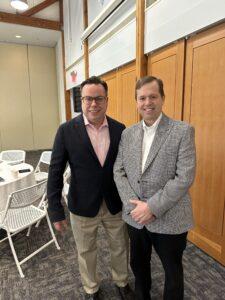
Research Institute Director Dr. Don Levy will present the findings on March 5 at the HVEDC’s second annual CEO Survey Breakfast, sponsored by UHY, at the Franklin D. Roosevelt Presidential Library and Museum. The report will detail Hudson Valley and New York State economic trends and forecasts, as well as CEOs’ feedback on the vital issues influencing companies’ ability to compete in today’s economy. The full report is available HERE.
“Despite increasing consumer sentiment, reports of lessening inflation and recent stock market gains, two-thirds of Upstate CEOs say business conditions are getting worse,” Levy said. “CEOs offer a more optimistic appraisal of their local area but compared to last year, predict declining revenues and profits. Still nearly one in three continue to look for new employees that can step in and contribute on day one.”
The Siena College Research Institute conducted interviews with 585 CEOs of Upstate New York companies/nonprofit organizations from October 10, 2023 through January 24, 2024. CEOs were from the following sectors: Service (21 percent), Manufacturing (17 percent), Nonprofit (8 percent), Engineering and Construction (12 percent), Retail (10 percent), Food and Beverage (9 percent), Wholesale/Distribution (8 percent), Financial (5 percent), Healthcare (6 percent), Technology (3 percent) and Tourism (2 percent).
While the CEO Survey results were mixed on several levels, the CEOs were clear about where they saw opportunity. The top growth areas they identified for the next three to five years – technology, education, tourism, medical and manufacturing – are areas where New York State’s economy has a strong foothold.
“CEOs not only predict technology will have a positive impact on the economic vitality of their region, but many are beginning to adopt disruptive technologies – including not only the cloud or cyber security, but also artificial intelligence, 5G, the internet of things, Chat GPT and digital analytics,” Levy said.
The Research Institute annually computes an Index of Business Leader Confidence based on the four questions in which CEOs assess New York State’s current and future economy and current and future conditions within their industry. An index score of 100 represents a breakeven point at which optimism and pessimism are balanced. Two years ago, the Upstate index was at 94.4. Last year, the index fell to 68.8. This year, the index is 60.8 – the lowest measurement since the all-time low of 39 in 2008. Still, this year’s score was 17 points above the 2020 score, recorded during the COVID-19 pandemic.
“With the index falling to its lowest level since 2008 amidst the Great Recession, CEOs are speaking loudly and clearly. They feel conditions ranging from a lack of governmental support, difficulty filling open positions and increasing costs in healthcare, energy and insurance all are making it more difficult for New York’s businesses to succeed. With consumer sentiment increasing, it is possible that next year, these CEOs may report a 2024 that was better than at present they predict,” Levy said.
Workforce recruitment and retention remain areas of concern for CEOs – and, as such, they are seeking solutions, the survey said. Only 29 percent of CEOs surveyed plan to increase their workforce this year, vs. 33 percent a year ago. However, 80 percent of CEOs, two percentage points fewer than last year, say there is deficiency of trained local workers. Three-quarters of the CEOs report difficulty filling open positions, with healthcare (89 percent), engineering/construction (92 percent) and manufacturing (79 percent) most acutely feeling the pinch. One-third of respondents, vs. 38 percent last year, have difficulty retaining existing employees. In addition, CEOs said job applicants’ quality is lacking, particularly in technical skills, professionalism, initiative, work ethic, writing skills and being realistic on compensation.
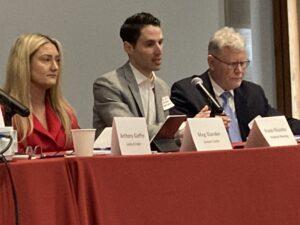
CEOs also say headwinds continue to hinder business success. At least 50 percent of all CEOs cited these top challenges: adverse economic conditions, 58 percent, down from 65 percent last year; governmental regulation, 65 percent, up from 63 percent last year; rising supplier costs, 56 percent, down from 60 percent last year; healthcare costs, 58 percent, virtually unchanged; and taxation, 57 percent, unchanged from last year.
Still, CEOs are clearly looking long-term and plan to invest in their businesses at only a somewhat lessened rate than last year. This year, 50 percent of CEOs, down from 55 percent last year, intend to invest in their company’s fixed assets to meet growing demand, reduce costs or enhance profitability. One-third of CEOs say that they will focus on market and demand growth this year in order to enhance profitability, while 31 percent, virtually unchanged from last year, will focus on price increases. The percentage of CEOs focused on cost reductions is down slightly this year to 20 percent, compared to 22 percent last year.
The CEOs also were surveyed about how New York State’s business climate could improve. 61 percent called for business-income tax reform; 60 percent want spending cuts; 59 percent called for personal income tax reform; 48 percent would like to see more workforce development; 47 percent prefer business development incentives; and 44 percent want infrastructure development. Despite those improvement opportunities, 45 percent of CEOs, compared to 38 percent last year, said they’d still locate their businesses in New York State if they had the opportunity to revisit that choice.
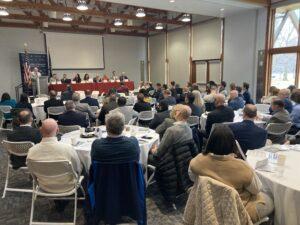
Elsewhere on government, only 12 percent said the federal government is doing an excellent (1 percent) or good (11 percent) job of creating a business climate in which companies like theirs will succeed. 88 percent say the federal government is doing either a fair (32 percent) or poor (56 percent) job. This negative assessment is little changed from last year, but is down from both 2020 (24 percent/76 percent) and 2019 (39 percent/57 percent). Similarly, only 13 percent are either very (1 percent) or somewhat (12 percent) confident in the ability of the federal government to improve the business climate over the coming year.
During a panel discussion moderated by A. Michael Bucci, Hudson Valley Managing Partner of UHY, discussion centered on survey results. “Our panelists’ vigorous discussion provided in-depth, plain-talk context and solutions for business leaders to contemplate,” Bucci said. “UHY was proud to sponsor the breakfast because these exceptional ideas and visions, and the bountiful data in the CEO Survey, combine to provide rare insights that otherwise are not easy to gather or synthesize.” Panel members included:
- Tamika Dunkley, CEO, Seasoned Delicious Foods, a food product manufacturer.
- Frank Filiciotto, Professional Engineer, Creighton Manning, a multidisciplinary design firm with expertise in civil engineering, surveying and construction inspection.
- Anthony Gioffre, Managing Partner, the law firm of Cuddy & Feder.
- Meg Glander, External Affairs East Area, Crown Castle, which specializes in communications infrastructure.
- Ron Hicks, Assistant Dutchess County Executive.
- Larry Boudreau, President of Development, Bellefield at Historic Hyde Park.
- Michael Oates, President and CEO, HVEDC.
- Eliza Bozenski, Chief Development Officer, the Anderson Center for Autism.
Other topics in the CEO Survey touched on:
- Disruptive Technologies: 49 percent of CEOs, vs. 43 percent from last year, say that they are either very (12 percent) or somewhat (37 percent) familiar with “disruptive technologies,” innovations that significantly alter the way that consumers, industries or businesses operate. Currently, 70 percent of CEOs see disruptive technologies more as an opportunity than as a threat (28 percent).
- Migrant influx: Looking back over the past 20 years, 44 percent of CEOs believe migrants resettling to New York State have been a benefit to the state; 56 percent said migrant resettlement is a burden.
Overall, Oates said, the information shared at the breakfast is designed to help the Hudson Valley smartly prosper.
“Dr. Levy’s comprehensive presentation will offer timely, meaningful and actionable intelligence from a broad swath of the industries most vital to the Hudson Valley and New York State economies,” Oates said. “This wealth of trend lines arms CEOs and other business leaders with insights that can power strategic planning, operational tactics and paths to success.”

